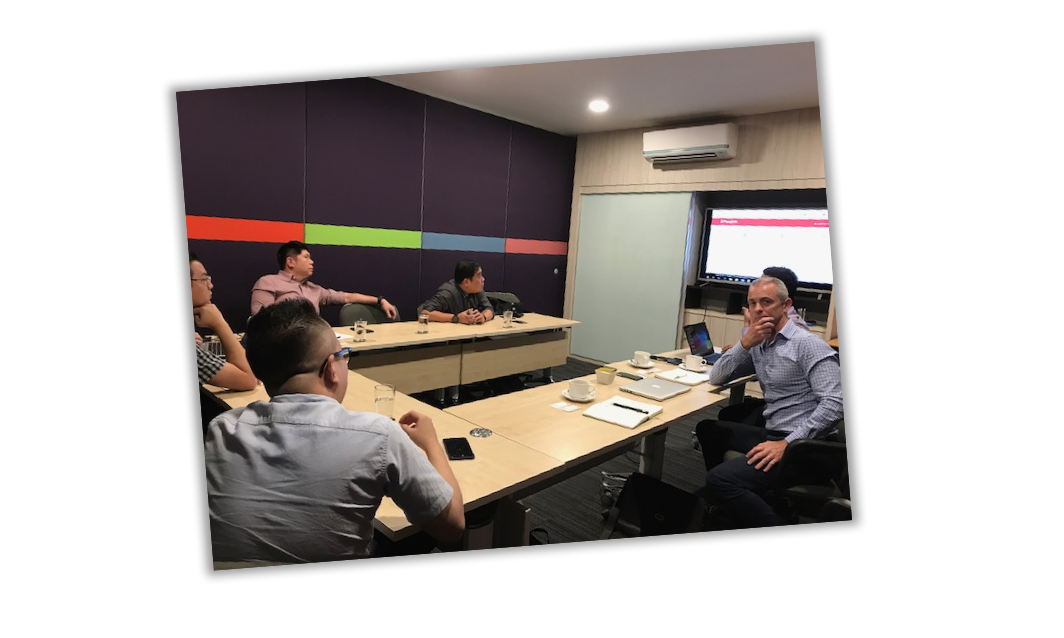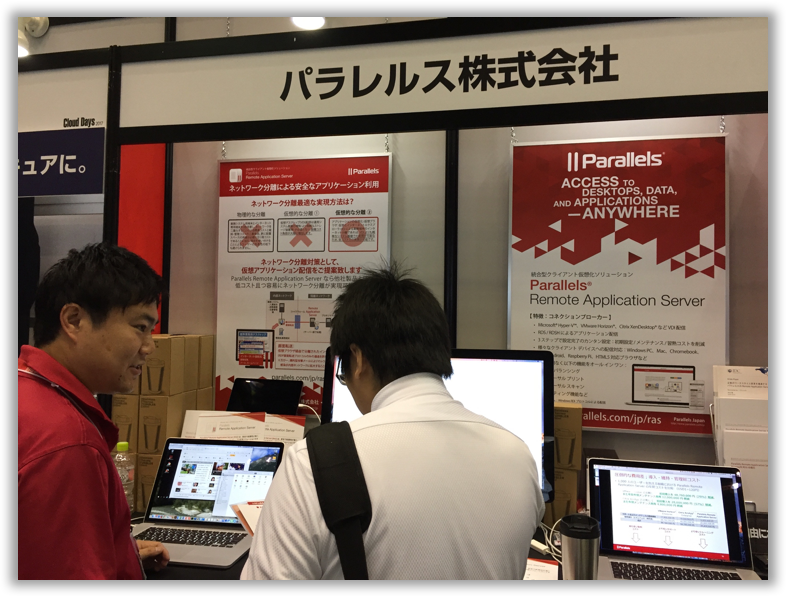Features of work in an international team. Japan

To work in another country is, as they say now, a challenge for many Russian specialists: can you “find” yourself in a new country, in a new role. The reasons for moving are always different, but most often people just want a change. And well, if they are for the better.
In the last publication we told about the peculiarities of working in an international team on the example of India. It is time to share observations about colleagues from the land of the rising sun.
Japan is quite an important market for Parallels. Historically, there have been and remain many of our users. On the one hand, this is due to the relatively high standard of living and local residents to high-tech. There are really many “makovodov” On the other hand, Japan is one of the first countries to try on the subscription model of software distribution. This is certainly very attractive for any IT company that prefers to work with projected revenues instead of uncertainty.

All roads lead to Tokyo
Parallels office in Tokyo appeared more than ten years ago. Initially, when it was necessary to enter the local market, one of the Russian pioneers, Alexey Anisimov, went here to explore.
“In Japan, it was quite hard outside work, because I did not know Japanese at all, there was a lot of English and Russian in the work,” says Alexey Anisimov. - Here I had to adapt to the local style of communication, although I often could not do this as a foreigner. By the way, it turned out that Tokyo is not such an expensive city, as everyone usually thinks. If you know about the features, then you can live well with a fairly average income. "
Quickly enough, we came to the understanding that in order to successfully develop business in the Japanese market, we need to work with local partners. By the way, this applies not only to Japan. In China, Singapore, France, the presence of local representatives is critical everywhere. So Parallels has grown its Japanese counterparts. Moreover, if initially it was a sales office, then over time we realized that technical support is required in Japanese. Although English is taught in local schools and universities, in everyday life, Japanese remains the key means of communication. No language - no sales and business.
This also applies to the localization of products. At the very beginning we had a rather curious case. We have localized instructions for our software and promotional materials in Japanese. Since we didn’t have our own Japanese personnel at that time, we gave everything to transfer to one of the European translation organizations. There we were given files with a set of unfamiliar hieroglyphs. We responsibly printed them linearly. Then we were told about the structure of the letter in Japan. It turned out that the writing of many East Asian languages allows for both vertical and horizontal lines. So we had to reprint the entire circulation of POSM materials. All that we previously printed went to the scrap, because it was not readable.

Our Japanese office today has a dozen employees. Age and gender composition is quite motley. These are mainly locals, although there are several Europeans in the team.
Among the cultural characteristics I would like to mention workaholism, responsibility, punctuality, respect and attention to the opinions of others and a very high level of politeness.
Then I would like to share with you some features of the Japanese, hidden from prying eyes, but definitely affecting the workflow.
1. The boss is always right. If you want to get a real opinion of a subordinate on any issue, he needs to clearly set such a task. Otherwise, he will only confirm your opinion, even if it is fundamentally wrong.
2. First, teach communication in the company of the European type. And then wait for the result. Of course this will not happen. In Japanese large companies, paternalism and practically the army system of relations is developed. The head of the company or office is the father of all employees. In order for Japanese colleagues to build relations within the company according to the Western, European type, they need to be trained. It is best to select first a local leader who has studied or worked in Europe or the USA. He will, in an understandable way for everyone, teach others communications that they are not used to.
3. Do not expect openness from employees.At work, it is not customary to express emotions and a friendly (real) attitude. It is always accepted and everything, even the easiest work, to perform with a serious face. Smile is not accepted. All polite and courteous, ready with a serious face to do nothing, but to depict the work. Unless you teach purposefully to another.
4. You can not come without a gift to visit (as in Russia).If you are invited somewhere, bring a small gift. It is small and inexpensive. Otherwise, according to centuries-old etiquette, you will oblige those who invited you to give you a return gift no less expensive than yours. And no one expects it. And you are involved in the exchange of more and more expensive gifts, as you have the obligation to respond with a gift to a more expensive gift with more expensive ones. Therefore, it is customary to give beautifully packaged fruits, for example. Foreigners are discounted, condescension. Therefore, it is sometimes better to come up empty-handed than with the wrong gift. You will be forgiven, you are a foreigner. But the correct option is to consult with the Japanese to whom and with what to go.
5. Dress code.In Japan, it is not customary for a leader to wear a T-shirt and shorts Like all office workers. If in all development offices in other countries there is no dress code at all, including for managers, here the appearance of the head of the company, representatives of the leadership in a public place in “inappropriate” clothes will cause surprise and rejection. If you find yourself in negotiations at any level in shorts and a T-shirt, you can lose a partner or contract only because of this, even if there is a real interest on the other side.
6. Any acquaintance with new partners should occur only after you are represented by a third party, the Japanese.It will be difficult to build a relationship with a new local company if you are not represented by your Japanese partners. In Japan, foreigners are very wary, although this is never shown directly. The leadership of local companies is sometimes ready to lose a lucrative contract rather than enter into relations with foreigners they do not understand. Therefore, the recommendation of existing partners with whom you have established a good relationship decides the matter.
7. Local mentality. In short, it is different.Another advertisement that often looks like a nursery to us, but it works great. Visual thinking, differences in perception of reality between women and men, different languages used by children and adults, etc. etc. Therefore, marketing in Japan should be built only with reliance on local specialists, although no one has canceled the experiments, but they are also associated with the risk of failure.
8. Correspondence. Any correspondence in Japanese should be conducted only by the Japanese, even if on your behalf.No translator from other countries is immune from mistakes. The Japanese are very sensitive to errors in their native language. But they are absolutely tolerant of mistakes in the English language, as well as in other languages that they hardly know. Therefore, if you are not confident in Japanese, write in English. This is normal. You will be answered in bad English and will also find it normal.
Entire books have been written about Japanese features. There are really a lot of them. It is impossible here to reflect everything in a few lines. But there is one most important advice to foreigners who do business in the country: find a partner or colleague from local ones, they will become your guides to success.

I wonder your opinion. Maybe you live or lived in Japan? Something noticed, which is not mentioned in this article. Share in the comments your experience in an international team. Also, if the topic seemed interesting to you, we can tell you about the features of the work, using the example of the United States or Australia.
ZY By the way, if you are interested in working in Parallels, please respond here or write to staff@parallels.com.

